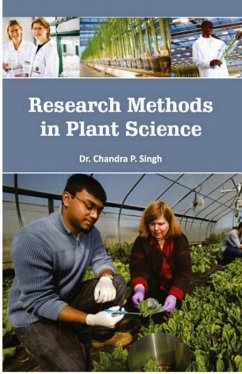When humans started building colonies and getting civilized their dependency on plants increased by several folds. Today plants are even more important due to their increased demand for their different uses. The study of plants is vital because they underpin almost all animal life on Earth by generating a large proportion of the oxygen and food that provide humans and other organisms with aerobic respiration with the chemical energy they need to exist. Plant responses to climate and other environmental changes can inform our understanding of how these changes affect ecosystem function and productivity. For the plant scientist, the information presented in this book will illustrate the basic principles, techniques, and potential capabilities of mass spectroscopy in studying biologically important molecules. An invaluable reference, the present two volume set will be an indispensable addition to the library of anyone involved inthe study of plant sciences. Contents: Vol. 1: Introduction • Soil • Lipids • Carbohydrates, Nucleic Acid and Phenolic Compounds in Soils • Terpenoids • Cyanogenic Glycosides • Adenine and Pyridine Nucleotides • Nitrogen and Phosphorus Vol. 2: An Introduction to Forestry Agroforestry • Trees in Life Support Systems-Traditional Agroforestry • Economic Potential for Sustainable Harvest of Medicinal/ Economic Plants • Forest, Deforestation and Reforestation • Fluorescence of Biologically Active Compounds in Plant Secretory Cells • Hydroponics • Plant Defenses against Pathogens and Herbivores • Multistoried Agroforestry Systems Studies
Dieser Download kann aus rechtlichen Gründen nur mit Rechnungsadresse in A, B, BG, CY, CZ, D, DK, EW, E, FIN, F, GR, HR, H, IRL, I, LT, L, LR, M, NL, PL, P, R, S, SLO, SK ausgeliefert werden.


